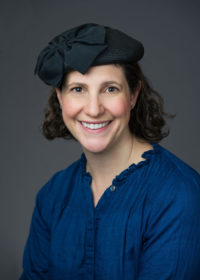An Interview with Rabba Sara Hurwitz

Rabba Sara Hurwitz; photo: Poppy Studio
In 2009 Rabba Sara Hurwitz became the first Orthodox woman to be ordained at the Hebrew Institute of Riverdale. In the same year, together with Rabbi Avi Weiss, she founded Yeshivat Maharat, the first Orthodox seminary to ordain women as clergy—full spiritual and halakhic leaders. Today, Yeshivat Maharat offers a dynamic group of women the opportunity to become ordained clergy within the bounds of halakha. It is not surprising that, when asked about which revolution she admires, Rabba Hurwitz’s answer is: “The women’s liberation movement, especially in the 1960s and 70s, which helped the world come to terms with the notion that 50 percent of the population‒‒women‒‒have equal abilities, talents, and passion to contribute to society.”
We asked her about female spiritual leaders, the #metoo movement, and the digital revolution: → continue reading

Book cover of the German edition of “Blumen für den Führer” © Verlag cbj
Innumerable publications have appeared on the market about the Nazi period in Germany, as well as a steady stream of new novels, non-fiction, and books for children or young adults that deal with this subject. Among them you will find Jürgen Seidel’s “Flowers for the Führer,” the first part of a trilogy that is, according to the reviews, “a very complex, moving, and exciting novel for young adults about a tragic love story during the era of National Socialism,” and is also “worth reading for adults.” Some of us read the trilogy as part of a reading group dedicated to keeping abreast of children’s and young adult literature about Nazism. And we quickly discovered that instead of discussing the depiction of the Nazi regime and German history, we needed to talk about something else: racism.
→ continue reading

